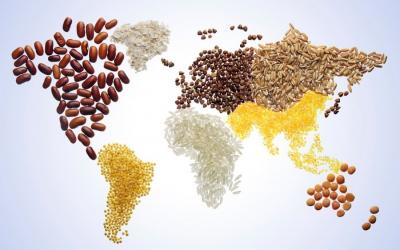Slow Food critical of gaps in FAO yearly report

ROME -- The Italian ‘Slow Food’ organization reacted Tuesday to the Food and Agriculture Organization's newly-released report “The State of Food and Agriculture 2016,” praising its consideration of the relationship between agriculture and climate change, but also critiquing other surprising lacks in the UN agency's report.
Slow Food praises the direct link drawn in the report between agriculture and climate change, and the backing given to agroecology, but observes that there is not enough attention given to the industrial production and consumption of meat, nor to the problem of land grabbing, and that there is no identifiable stance on GM foods.
According to the report, “farmers, fishers and pastoralists are hit hard by rising temperatures and the increasing frequency of weather-related disasters. By 2030, the negative impacts of climate change will put an increasing squeeze on food production as the essential nutritional values of crops, such as of zinc, iron and protein, will diminish.”
Furthermore, as emphasized by FAO, “the impacts of climate change are more strongly observed in rural communities, where there is a higher dependency on agriculture both as a source of income and for sustenance.”
Paolo Di Croce, Secretary General of Slow Food, declares: “The only way to reduce food-related greenhouse gas emissions is to adapt to an agroecological approach, and end support for industrialized agriculture and the globalized export markets. Slow Food voices its belief that good, clean and fair food for all is a human right, and that corporate control of the food system has led to hunger, poverty, and climate change. By acting locally, and supporting small-scale agriculture, we can make a difference globally.”
Slow Food encourages everyone, around the world, to grow their own food where possible, and to support their local farmers. Of course, in order to grow food, we need soil—and we need to face up to the crisis of soil degradation which affects farmers across the globe. We need wide-ranging and immediate initiatives to protect our soil (such as People4Soil, which demands that the European Union recognize soil as a common good), based on agroecological methods.
The FAO report itself states: “Diversification and better integration of food production systems into complex ecological processes create synergies with the natural habitat instead of depleting natural resources. Agroecology and sustainable intensification are examples of approaches that improve yields and build resilience.” Slow Food agrees with this perspective.
Nevertheless, while the battle against climate change is clearly related to developments in the food industry—from its production and transportation to the energy required to deal with the obscene amounts of food waste we produce—one of the major sources of carbon emissions, the livestock industry, which generates between 10 and 25 percent of all greenhouse gas emissions, is barely mentioned in the FAO report. Eating less meat and more pulses is a necessity for our future, and public support for industrialized meat production must be stopped.
Slow Food notes also the conspicuous absence of several major threats to global food security in the 194-page report. Firstly, land grabs are mentioned just once, and unbelievably only in the context of the European Union. Independent observatory the Land Matrix has recorded the sale of 2 percent of the world's arable land to private investors since the year 2000, an area larger than the United Kingdom. Where once-pastoral lands are converted for intensive monocultural crop production, this also contributes to climate change.
Finally, given the ongoing debate on GMOs, the FAO report's silence on the matter is deafening. Were GMOs unequivocally considered an instrument in the fight against climate change, Slow Food would expect the report to say so. Yet the report does not mention GMOs once. Beyond questions of safety, the threat to food security comes from the simple fact that GMOs are patented, and there increasing use is inextricably linked to corporate control of the food chain.
Patenting genetic material has shifted the balance of economic power from farmers towards big businesses in their aggressive pursuit of profit, as small-scale farmers are forced to become customers of GM seeds every new season. If FAO is serious in its commitment to supporting smallholder farmers, which would seem evident in the fact that the first of the “Key Messages” in the report's third chapter is -- “Global poverty cannot be eradicated without strengthening the resilience of smallholder agriculture to climate change impacts,” then surely we must reduce the dependence of these smallholder farmers on patented GM seeds.
nkd


